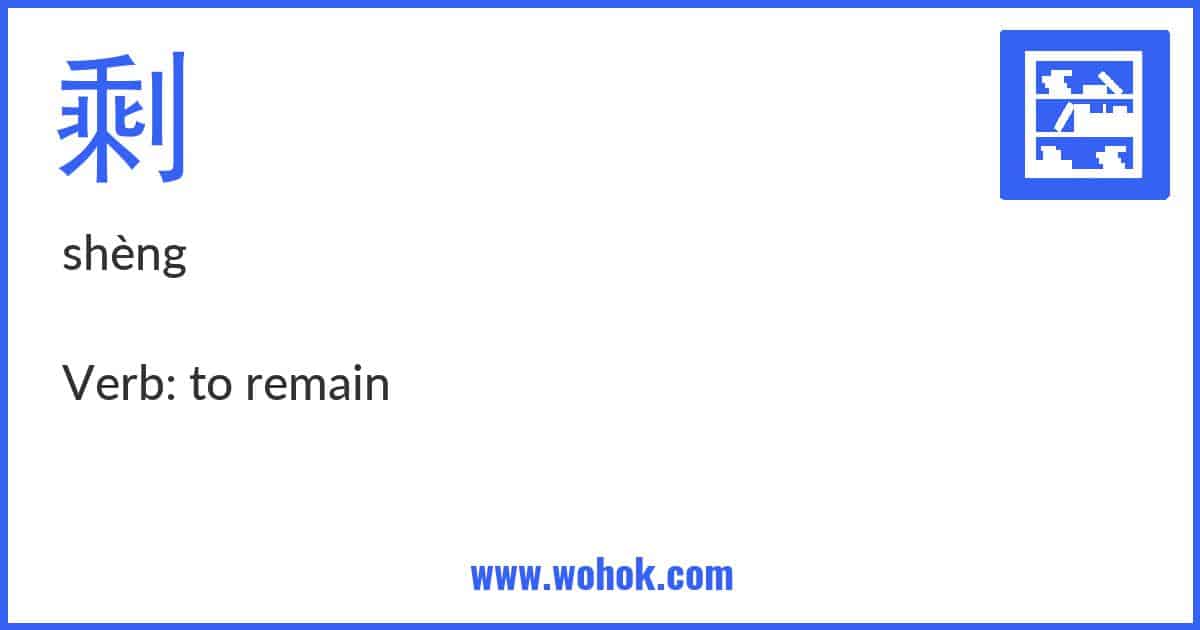The Chinese word 剩 means “leftover” or “remaining”. It is commonly used to describe food that is left over after a meal, but it can also be used more broadly to refer to anything that is left over or remaining. For example, you might use this word to describe the remaining time in a day or the leftover money in your bank account. In addition, the word 剩 can be used as a verb to describe the act of leaving something behind or remaining after others have left.
Translation
Verb: to remain
Pronunciation
Example Sentences
| Chinese | Pinyin | Engish |
|---|---|---|
| 这道菜没剩了 | zhè dào cài méi shèng le | There’s no more of this dish left |
| 剩下的钱你拿去买点东西吧 | shèng xià de qián nǐ ná qù mǎi diǎn dōng xī ba | Take the remaining money and buy something |
| 我们需要把剩菜放进冰箱里 | wǒ men xū yào bǎ shèng cài fàng jìn bīng xiāng lǐ | We need to put the leftover food in the fridge |
| 剩下的时间我们可以去看电影 | shèng xià de shí jiān wǒ men kě yǐ qù kàn diàn yǐng | We can go watch a movie with the remaining time |
| 这个房间里剩下的空间不够放东西 | zhè ge fáng jiān lǐ shèng xià de kōng jiān bù gòu fàng dōng xī | There’s not enough space left in this room to put things |
| 剩下的工作就交给你了 | shèng xià de gōng zuò jiù jiāo gěi nǐ le | I’ll leave the remaining work to you |
| 我们必须把剩下的时间用在学习上 | wǒ men bì xū bǎ shèng xià de shí jiān yòng zài xué xí shàng | We must use the remaining time to study |
| 剩下的饭菜可以给狗吃 | shèng xià de fàn cài kě yǐ gěi gǒu chī | The leftover food can be given to the dog |
HSK
剩 is part of HSK Level 4 in HSK 2.0. In the newer HSK 3.0 it is part of HSK Level 5.
Learning Card


